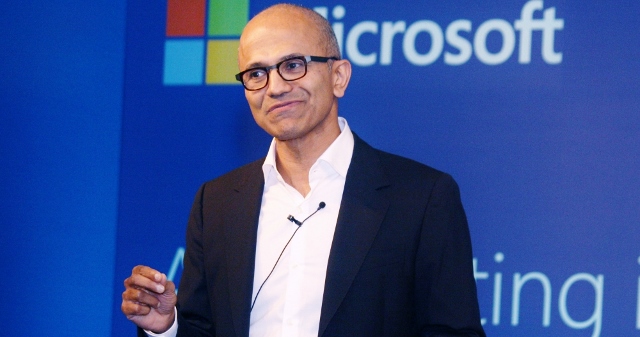San Francisco, June 13: Microsoft Corp on Monday said it is acquiring professional networking website LinkedIn for $26.2 billion in an all-cash deal, billed as one of the largest such pacts in the global social media space.
LinkedIn, which has nearly 10 percent of its over 430 million users in India, will retain its distinct brand, culture and independence and Jeff Weiner will remain the chief executive of LinkedIn, reporting to his Indian-born Microsoft counterpart Satya Nadella, the tech giant said in a statement.
The deal, expected to close within this year, works out to over $60 per LinkedIn user.
“The LinkedIn team has grown a fantastic business centered on connecting the world’s professionals. Together, we can accelerate the growth of LinkedIn, as well as Microsoft Office 365 and Dynamics as we seek to empower every person and organisation on the planet,” Nadella said in a statement.
Microsoft will pay $196 per LinkedIn share — a 50 per cent premium to LinkedIn’s closing price on June 10. The news brought cheer for LinkedIn as shares jumped 48 per cent to $194.35 on Monday.
But Microsoft shares fell nearly 3 per cent.
“Today is a re-founding moment for LinkedIn. I see incredible opportunity for our members and customers and look forward to supporting this new and combined business,” added Reid Hoffman, chairman of the board, co-founder and controlling shareholder of LinkedIn.
“I fully support this transaction and the Board’s decision to pursue it, and will vote my shares in accordance with their recommendation on it,” Hoffman added.
When it comes to users, India has been one of the fastest-growing markets for LinkedIn in the past few years.
The Mountain View, California-based LinkedIn recently opened its largest office in Asia in Bengaluru that can house over 800 employees. The company currently has nearly 650 employees in India.
“The news has actually surprised me. We have yet to see how this will bring in revenue for Microsoft other than acquiring a popular brand. Also, we have to wait for its repercussions in India where LinkedIn is gradually growing,” said Vishal Tripathi, Research Director at global market consultancy firm Gartner.
“I would expect Microsoft to exploit this opportunity by bringing its brand and offerings closer to professionals connected via LinkedIn through the power of social networking, which is bound to translate into additional sales revenues in the years to come,” said Sanjoy Sen, Doctoral Research Scholar, Aston Business School, UK.
Mark Skilton, professor at Warwick Business School, said the acquisition made sense in respect of Microsoft’s link with enterprise in its cloud platform and portfolio of business services, and added it will help the global software giant to build out its enterprise services capabilities.
“LinkedIn makes two thirds of its income from talent solutions in recruiting and job market services that define it and the remainder in selling marketing solutions and premium subscriptions. It has remained the website to go to for professional networking,” Skilton added.
LinkedIn recently launched a new version of its mobile app that has led to increased member engagement and enhanced its news feed to deliver better business insights, the company said. It also acquired a leading online learning platform Lynda.com to enter a new market and rolled out a new version of its recruiter product to its enterprise customers.
“Just as we have changed the way the world connects to opportunity, this relationship with Microsoft and the combination of their cloud and LinkedIn’s network now gives us a chance to also change the way the world works,” Weiner noted.
“For the last 13 years, we’ve been uniquely positioned to connect professionals to make them more productive and successful, and I’m looking forward to leading our team through the next chapter of our story,” he added.
Hit by a massive data breach that put nearly 167 million users’ passwords and personal information in the hands of hackers four years back, LinkedIn recently came out with an explanation and steps it has taken to protect users.
In an email sent to all its members, LinkedIn admitted that the massive data breach in 2012 may result in millions of passwords being leaked to the internet.

